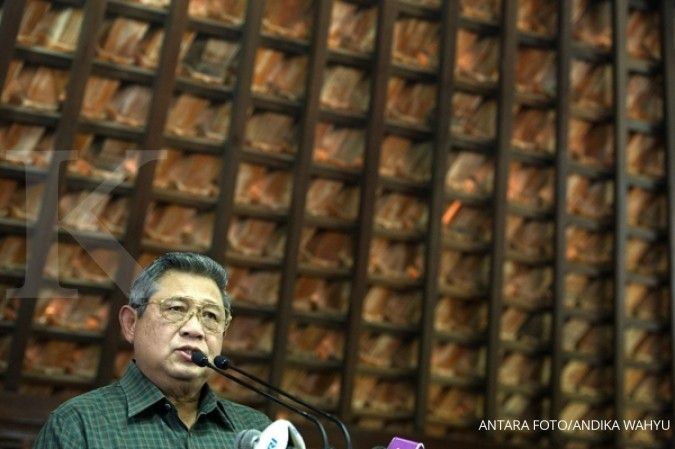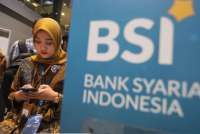JAKARTA. When Susilo Bambang Yudhoyono took office as president in 2004, Indonesia had picked up the pace with economic expansion soaring to above 5 percent. Such growth was sustained for years, laying a foundation for Southeast Asia’s largest economy to be more outward-looking and to participate more actively in regional and global diplomacy.
Under Yudhoyono, the country stepped up its efforts to flex its muscles in the global economy and voice its interests not only in regional groupings like ASEAN and APEC, but also on wider platforms, primarily in the major economic forum, G20, and in multilateral trade organizations like the World Trade Organization (WTO).
Economic Research Institute for ASEAN and East Asia senior policy coordinator Yoshifumi Fukunaga acknowledged that Indonesia’s presence in international economic policy discussions had increased dramatically.
“This is backed by Indonesia’s political stability and economic growth and that should be attributed to the 10 years of Yudhoyono’s administration,” he told The Jakarta Post in an email interview.
While taking part in global economic forums enables Indonesia to express its opinions, perhaps hosting some key economic meetings, such as the APEC Summit and the ministerial meeting of the WTO last year, has allowed the nation to enhance its diplomatic stature and catch broader global attention.
Indonesia hosted the non-binding APEC summit for the first time in 1994, which generated the famous “Bogor Goals”, a commitment of the Asia-Pacific economies for a free and open trade and investment regime.
In the APEC summit in Bali last year, Yudhoyono’s government came up with another milestone proposal, the APEC Connectivity Framework, which expands the initiative to boost the linkages among ASEAN economies to other Asia-Pacific peers and includes a multi-year plan on infrastructure development and investment.
In terms of domestic interest, Indonesia brought to the table an agenda to extend the environmental goods list of 54 green goods, subject to a 5 percent tariff cut by 2015, in a bid to include its key commodities, such as palm oil and rubber.
However, most of the members did not back Indonesia’s proposal to enlarge the green goods list. Instead, they agreed to elaborate on the possibility of trade in products that contributed to sustainable and inclusive growth through rural development and poverty alleviation, which may help open a path for palm oil and rubber to get similar tariff cuts under a new list.
Another event that gave Indonesia a chance to exercise its leadership was the ninth ministerial meeting of the Geneva-based multilateral trade body, the WTO. This meeting was considered crucial to restore confidence in the multilateral trading system after the stalling of the Doha Round, which led to a proliferation of bilateral, regional and plurilateral trade agreements.
Members aimed to achieve three proposed deliverables: trade facilitation, agriculture and least-developed countries packages. They were seen as stepping stones to revive the talks and even move toward new negotiation topics, such as services and green technology.
However, ahead of the meeting in Bali negotiators in Geneva failed to craft the deal, which, among other things, was expected to generate the first global trade agreement that would have provided a US$1 trillion boost to the world economy by streamlining custom rules.
WTO director general Roberto Azevedo, along with then trade minister Gita Wirjawan, Yudhoyono’s close aide, did the tough jobs until finally the deal could be delivered.
“The WTO 2013 ministerial conference was definitely an important achievement. Although we are already facing a challenge for its implementation in Geneva, the Bali ministerial meeting revived the rule-making function of the WTO,” Fukunaga said, referring to Indonesia’s success as a host.
Titik Anas, an economist from Padjadjaran University, said that Yudhoyono secured a good track record in giving Indonesia a higher leverage in the world economic landscape.
Titik, however, also said that Yudhoyono’s success in the international sphere did not resonate well locally and this was partly attributed to a gap in domestic and foreign economic commitments, such as an aspiration toward an open economy versus the protectionist policies endorsed during his administration. (Linda Yulisman)










